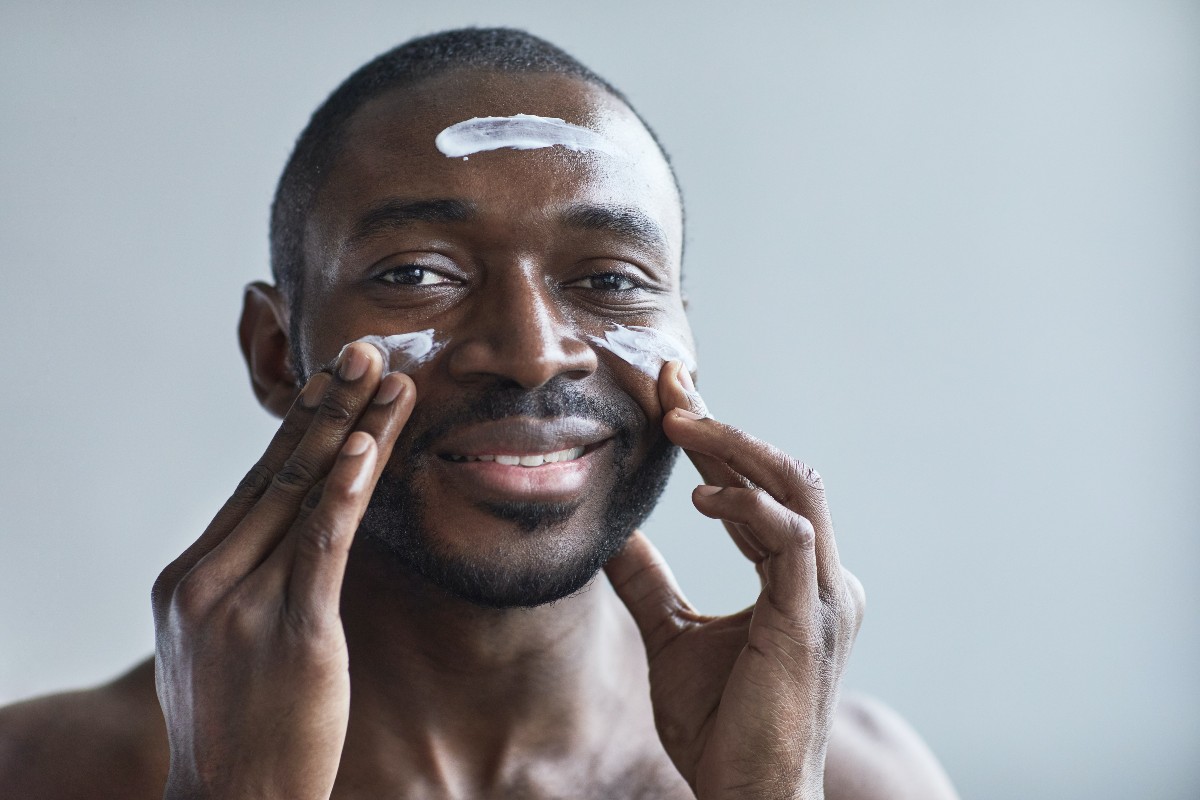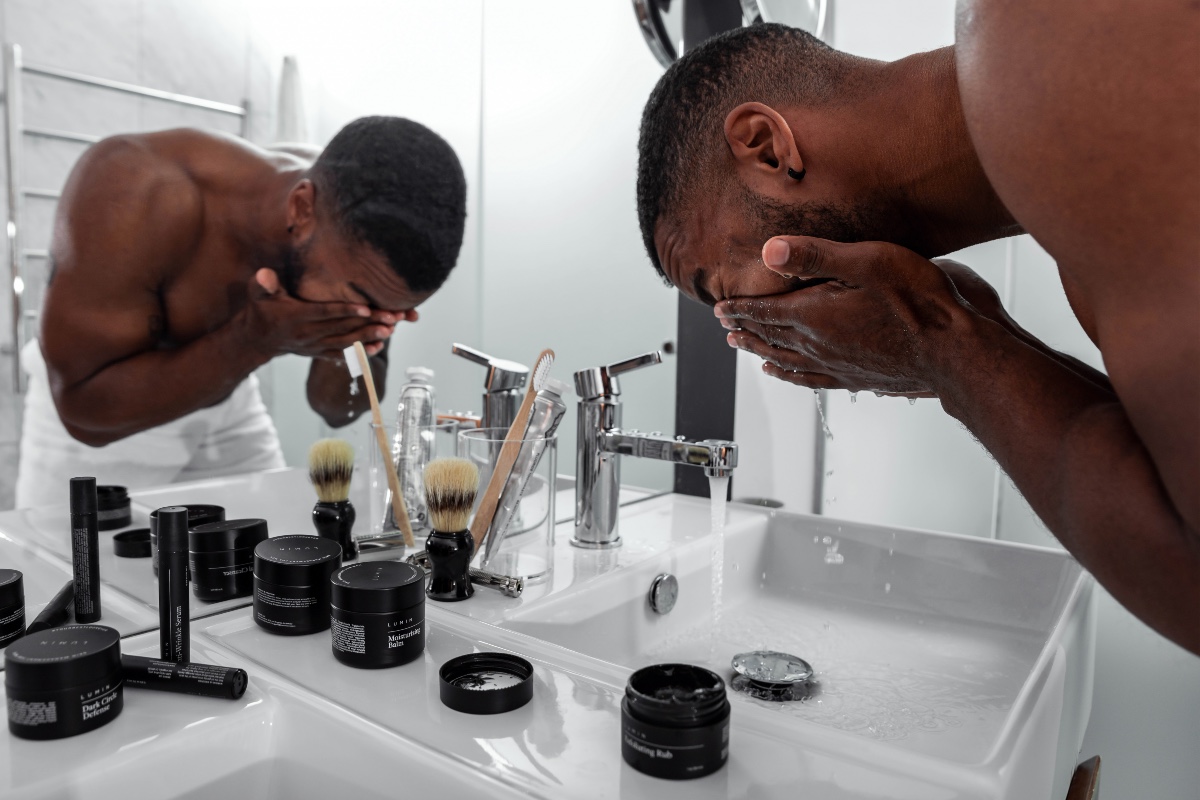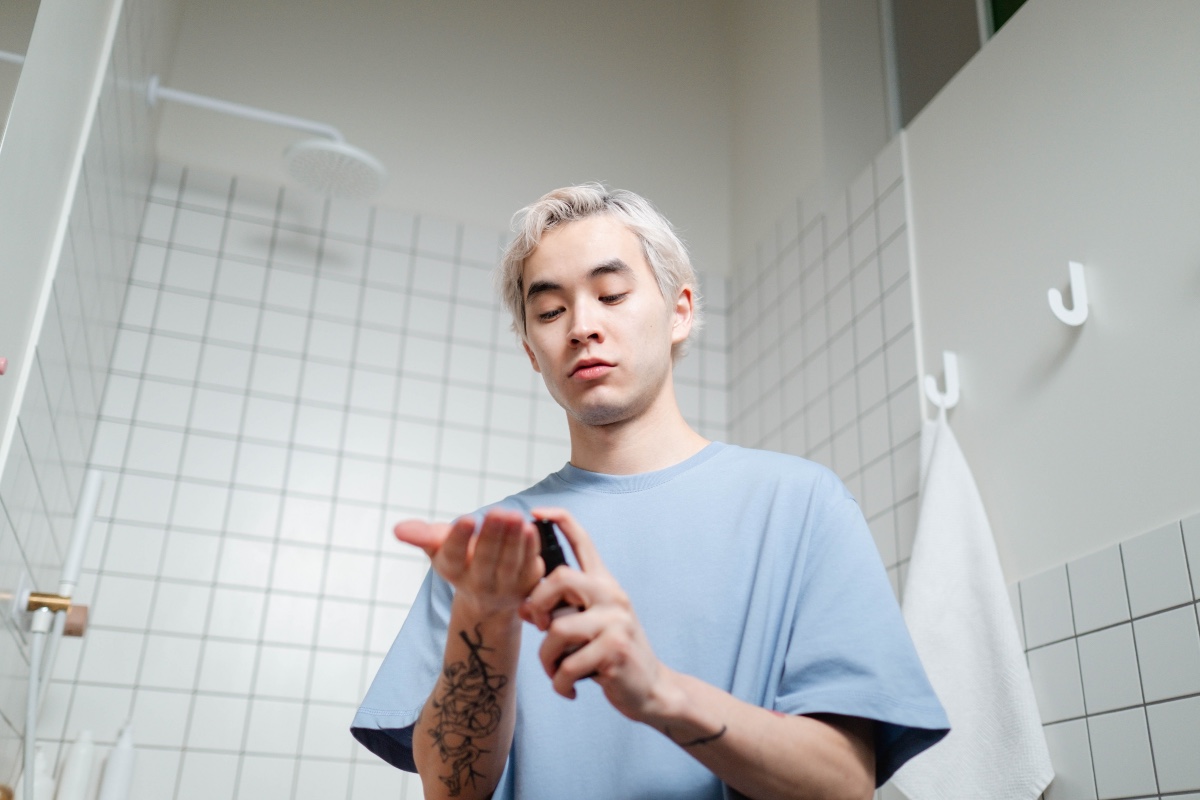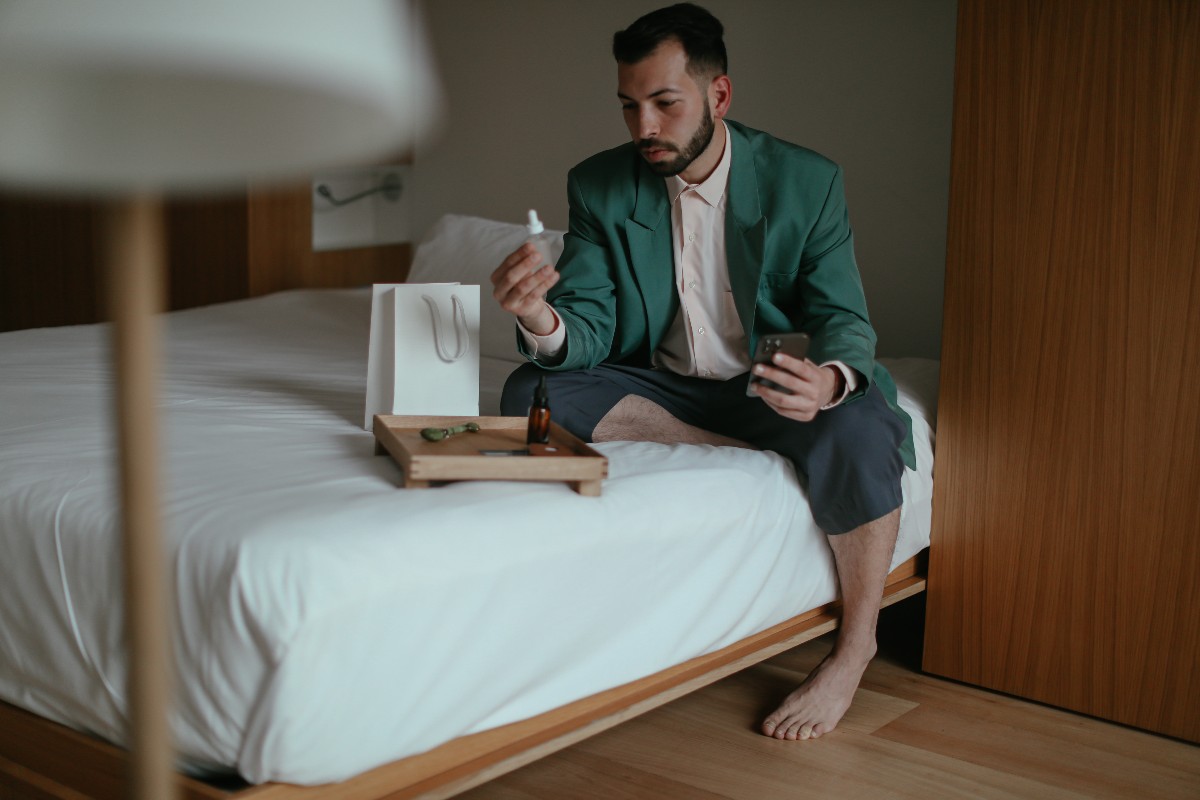Moisturizer is an essential skin care product, whether you prefer a pared-down routine or one with a laundry list of steps. Dermatologists typically recommend applying it twice per day, every day, to keep skin well hydrated and reduce the likelihood you’ll need to contend with pesky issues like dryness, redness, and flaking.
“I tell my patients that using moisturizers twice a day, like brushing their teeth, helps maintain skin health because moisturizers are designed to protect our skin barrier,” says Elaine F. Kung, MD, a clinical assistant professor at Weill-Cornell Medical College and dermatologist with Future Bright Dermatology.
However, not all moisturizers are created equally, and not every type is ideal for your skin.
“When choosing the moisturizer, it is important to pay attention to the formulation and ingredients,” says Viktoryia Kazlouskaya, MD, Ph.D., a certified dermatologist with Khrom Dermatology in Brooklyn and University of Pittsburgh Physicians.
For example, ingredients in some moisturizers, like retinol, may be perfect for people with acne but can exacerbate dry or sensitive skin. Dr. Kung and Dr. Kazlouskaya have provided insights into choosing the best option for you.

How to figure out your skin type
Unsure of your skin type? Here is a primer from the pros:
“Oily skin feels greasy shortly after washing your face. It may appear shiny, has visible pores, and is prone to breakouts,” Kazlouskaya says. “One way to find out if you have oily skin is by washing your face with a mild cleanser and evaluating it a few minutes after. You can tap your skin with the paper towel and see how much oil is left on the paper.”
Kazlouskaya explains that dry skin feels tight and may look dull. People with severely dry skin may notice flaking.
Flakes are also a symptom of sensitive skin, but this type has additional symptoms.
“Sensitive skin may appear red,” Kazlouskaya says. “Sensations of burning and itching may happen, often after the use of cosmetics.”
There’s some gray area surrounding the definition of aging or “maturing” skin.
“In my mind, people over 40 can be considered to have maturing skin because we lose 1% of collagen per year after the age of 18, so, by age 40, visible signs of aging like thinning skin are more evident,” says Kung.

What is the best moisturizer for my skin type?
What’s the best moisturizer for acne-prone skin? Spoiler alert: It’s not the same as the best face moisturizer for sensitive dry skin. Now that you’ve figured out your skin type, let’s go below the surface to explore which ingredients would be best for you.
Best moisturizer for oily skin
Both Kazlouskaya and Kung lump oily and acne-prone skin together. Acne typically happens when sebum — an oily substance — clogs pores and causes pimples.
That excess oil can make people with this skin type hesitant to use moisturizer for fear it’ll make them look and feel “greasier.”
“It is a common misconception that oily skin does not need a moisturizer, but choosing a lighter formulation is important,” Kazlouskaya says.
What does that mean?
“Lightweight formulations with hyaluronic acid, ceramides, and glycerin,” Kazlouskaya says.
She and Kung both suggest Neutrogena Hydro Boost Water Gel Moisturizer. Hyaluronic acid and glycerin are among its main ingredients, making it one of the best moisturizers for oily skin.
Also, both suggest steering clear of products with oils and waxes on the ingredients list.
Best face moisturizer for dry skin
Kazlouskaya suggests reaching for moisturizers with ceramides, triglycerides, and panthenol. However, people with severe dryness, often hallmarked by flaking, may need to look for an extra power ingredient.
“For severe dryness, petrolatum-based moisturizers may be needed,” Kazlouskaya says.
Kazlouskaya’s go-to face moisturizers for dry skin include La Roche-Posay Cicaplast and Avene Hydrance RICH Hydrating Cream. Avene’s formulation includes shea butter that can provide additional hydration, Kazlouskaya says.
Best face moisturizer for sensitive skin
Sensitive skin can be dry — but it isn’t always. People with sensitive skin need to take extra care in choosing a moisturizer because they are prone to irritation. It can be challenging to find products that don’t exacerbate their issues, such as eczema. However, moisturizer is critical.
“A good rule of thumb for people with sensitive skin is to treat their skin like a baby’s skin because their skin is fragile,” Kung says. “I tell them to moisturize, moisturize, moisturize. What’s good enough for a baby’s bottom is good enough for their skin.”
In general, a less-is-more approach is best.
“I highly recommend avoiding fragrances and perfumes in moisturizers,” Kazlouskaya says. “I also warn patients with sensitive skin about natural and organic products because they may contain natural fragrances and are actually often more irritating than synthetic components.”
Even hyaluronic acid may be problematic for sensitive types, says Kazlouskaya, pointing to 2021 research. Low-molecule hyaluronic acid may be pro-inflammatory, while high-molecular-weight hyaluronic acid typically reduces inflammation. Kazlouskaya recommends people with sensitive skin take a customized approach to using moisturizers with hyaluronic acid and consult a provider if they note issues.
“If skin constantly reacts to different cosmetics with rashes, an evaluation by a board-certified dermatologist and possibly a patch testing for contact allergy are warranted,” she says.
What can people with sensitive skin generally feel safe using?
“Good skincare brands for people with sensitive skin have formulated their moisturizers with ingredients that can simulate the skin barrier like ceramides, triglycerides, and squalene,” Kung says.
Kazlouskaya’s favorite moisturizers for sensitive types include La Roche-Posay Toleriane Double Repair Face Moisturizer and Vanicream Moisturizing Skin Cream.
Best facial moisturizer for aging skin
Kung says skin changes like aging are typically more evident in post-menopausal women than men around the age of 40 because of hormone shifts, but no one is entirely immune. When collagen diminishes, the skin becomes less firm and starts sagging. Lines and wrinkles that were once only presented when smiling, laughing, or frowning are always there.
A good moisturizer can’t turn back the hands of time or prevent aging forever, but it can help. When looking for the best facial moisturizer for aging skin, texture matters. Kung suggests opting for thicker, creamier moisturizers.
Kung says to look for a double-whammy of ingredients to nix dryness and prevent collagen from degrading, including:
- Ceramides
- Hyaluronic acid
- Shea butter
- Vitamin C
- Vitamin E
- Retinol
- Peptides
One of Kung’s favorite moisturizers for aging skin is Peter Thomas Roth Water Drench Hyaluronic Cloud Cream Hydrating Moisturizer.
Kazlouskaya suggests Olay Regenerist Retinol 24+Peptide Night Moisturizer or Revision Skincare D.E.J. Night Face Cream, which boasts retinol.

My moisturizer has SPF. Do I need daily sunscreen?
One factor many moisturizers have in common is SPF. Does a morning application cover your sunscreen needs for the day? This question is tricky to answer.
“Many brands nowadays produce combination products with SPF and moisturizer, and there are no scientific studies that demonstrate if they are similar, superior, or inferior to using separate products,” Kazlouskaya says. “In fact, almost all sunscreens contain similar components to moisturizers.”
Ideally, Kazlouskaya says people should apply moisturizer and a separate sunscreen.
“However, it is not always feasible, especially for people with oily or sensitive skin,” Kazlouskaya says. “If someone is not able to use moisturizer and sun protection separately, I am OK with it, especially in winter months in [a place like NYC]. I emphasize they apply a sufficient amount — nearly the length of two fingers.”
Outdoor activities, regardless of the time of year, require applying a separate sunscreen and re-applying every two hours to protect the skin against harmful rays that can up the risks of cancer and premature aging.

Bottom line on the best moisturizers for your skin type
Every skin type has unique needs, so no moisturizer is a one-size-fits-all solution. The best face moisturizer for sensitive dry skin is different than the best moisturizer for acne-prone skin, for example. Understanding your skin type and the ingredients that minimize issues can help you look and feel your best. If you notice constant breakouts or rashes, stop using a product and seek a dermatologist.
Editors' Recommendations
- Do you have white bumps on your face? It might not be acne
- Micro-needling: Experts explain the risks and benefits for your skin
- Is coffee bad for teeth? Dentists explain how you can keep your pearly whites healthy
- Experts reveal how to introduce retinol to your skincare routine (and what to avoid)
- How to take care of your scalp for healthier hair




